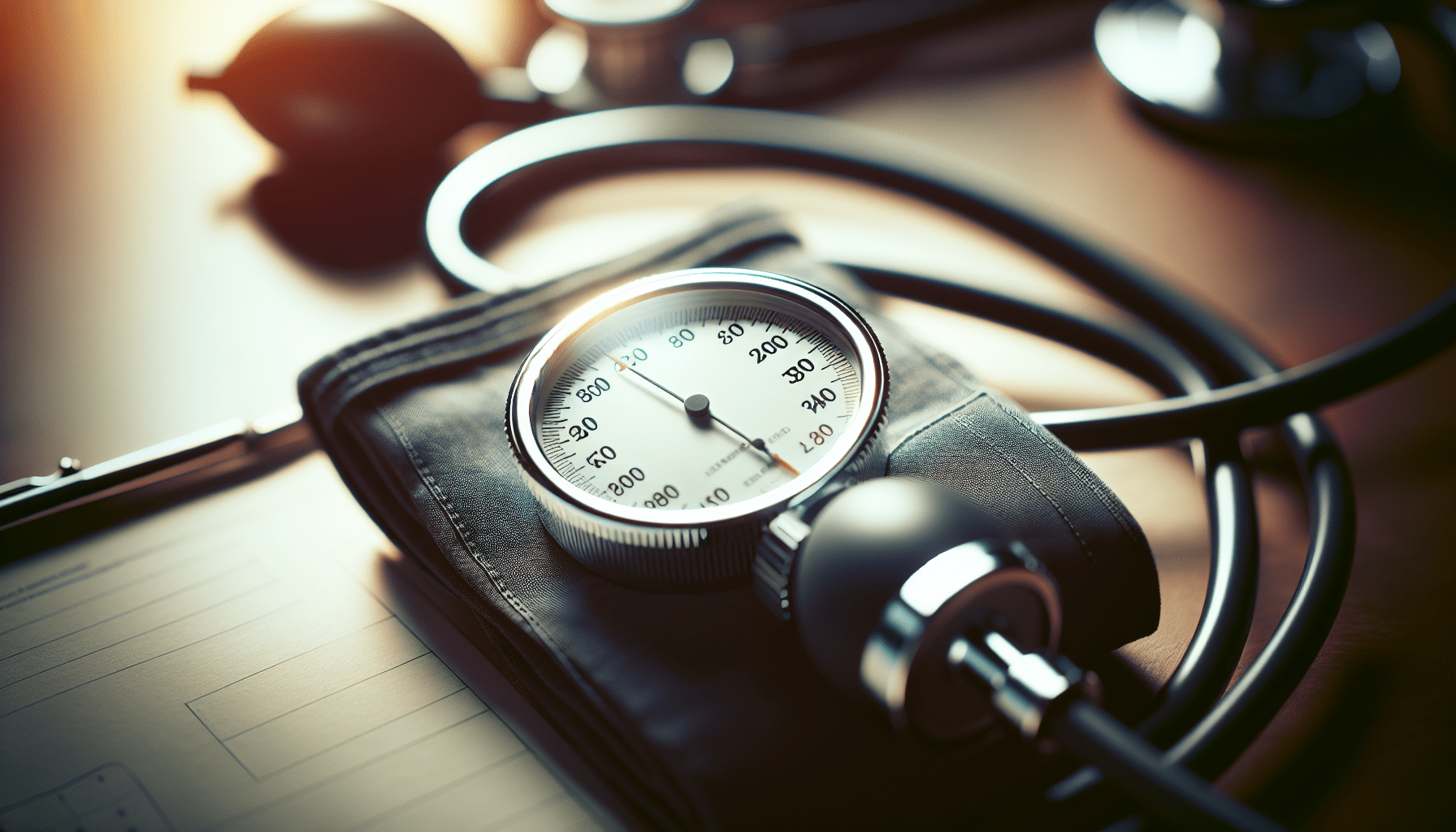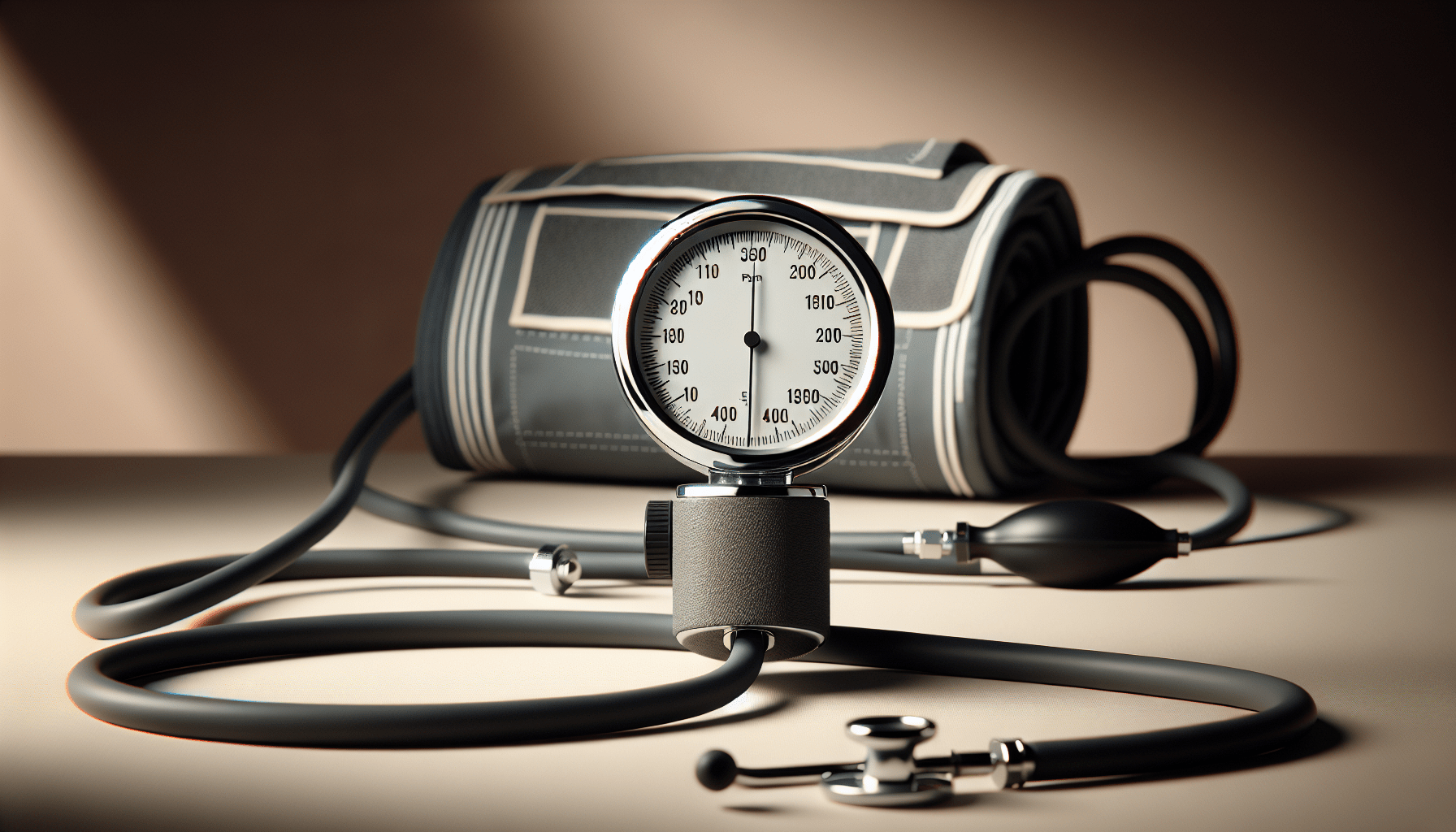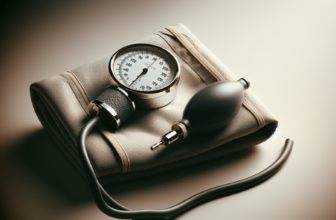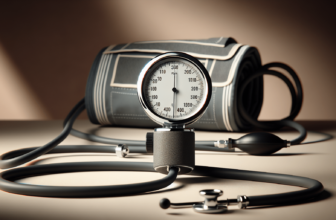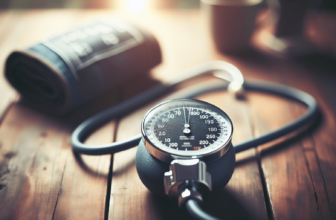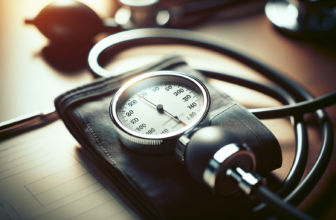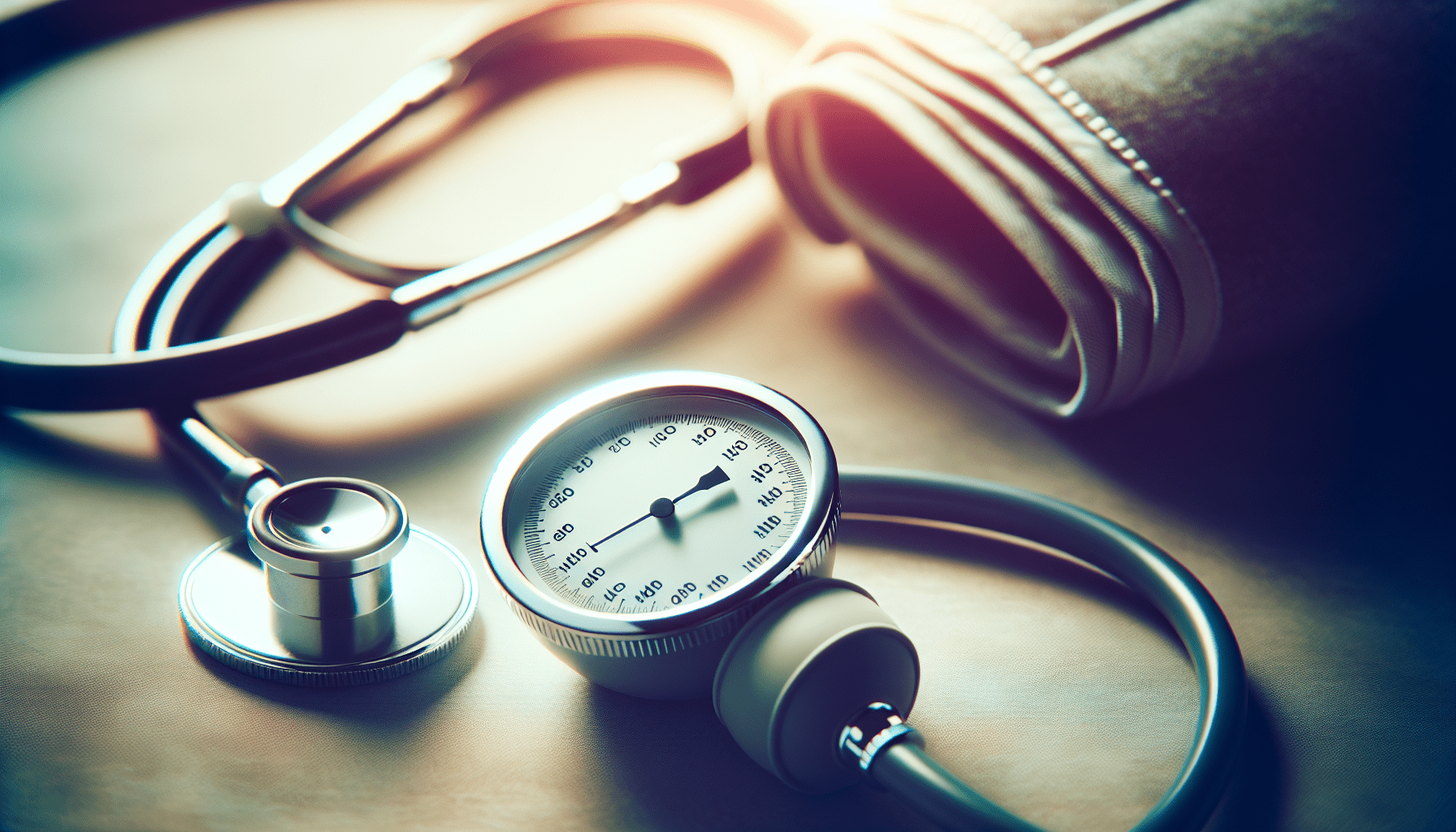
Have you ever wondered if you might be experiencing symptoms related to high blood pressure? Understanding the signs can be crucial for maintaining your health. High blood pressure, or hypertension, is often referred to as a silent killer because many people don’t notice any symptoms until the condition gets severe. Let’s unpack this topic together so you can be more informed.
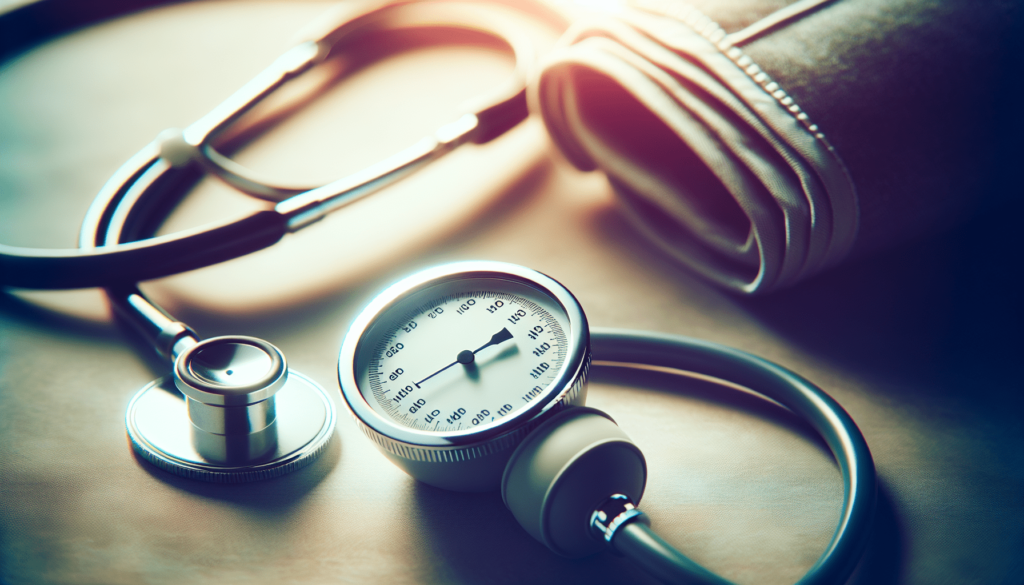
Understanding High Blood Pressure
High blood pressure occurs when the force of the blood against the walls of your arteries is consistently too high. This condition can lead to various health issues if left untreated, including heart disease, stroke, and kidney problems. Knowing what to look out for can help you take action sooner rather than later.
What is Considered High Blood Pressure?
Blood pressure is measured in millimeters of mercury (mm Hg) and recorded with two numbers: systolic pressure (the first, higher number, indicating pressure when your heart beats) and diastolic pressure (the second, lower number, indicating pressure when your heart rests between beats). According to the American Heart Association, normal blood pressure is typically under 120/80 mm Hg, while high blood pressure is diagnosed when it’s above 130/80 mm Hg.
Stable blood pressure is key to your overall well-being, so it’s crucial to keep it within a normal range.
Common Symptoms of High Blood Pressure
Unlike many other conditions, high blood pressure doesn’t always show obvious symptoms. However, some people might experience specific warning signs as a result of the strain that high blood pressure puts on your body. Let’s look at some of these symptoms.
Headaches
One symptom that some people report is headaches. These are often described as pulsating or throbbing and can occur more frequently than usual. However, it’s essential to note that not everyone with high blood pressure will experience headaches. If you find that your headaches are more intense or occurring more often, it might be worth discussing with your healthcare provider.
Shortness of Breath
Experiencing shortness of breath can also be a symptom linked to high blood pressure. When your heart has to work harder to pump blood, it can lead to difficulty breathing, particularly during physical activities. If you find that you’re unusually winded after engaging in moderate exercise, it’s a good idea to get this checked out.
Dizziness or Lightheadedness
Feeling dizzy or lightheaded can indicate high blood pressure. This happens because the high pressure can sometimes cause inadequate blood flow to your brain. If you’re feeling this way often—especially when you stand up quickly—make a note to discuss it with your doctor.
Nosebleeds
Occasionally, you might find that you’re experiencing frequent nosebleeds. High blood pressure can affect the delicate blood vessels in your nose, leading them to burst more easily. If you’re noticing nosebleeds occurring regularly, it’s something to pay attention to.
Vision Problems
High blood pressure can also affect your vision. You might notice blurriness or see spots, which can be alarming. This symptom is related to changes in the blood vessels in your eyes and should be evaluated as soon as possible.
Chest Pain
If you’re experiencing chest pain, it might be associated with high blood pressure. The pressure on your heart can result in discomfort or pain, which can be a serious warning sign. If you ever feel chest pain, it’s crucial to seek immediate medical attention.
Fatigue
Feeling unusually tired can also be a symptom of high blood pressure. Your heart is working harder than it should, and this added effort can drain your energy levels. If you notice a marked increase in fatigue over time, it might be worth discussing with your healthcare provider.
What Causes High Blood Pressure?
Understanding what leads to high blood pressure can help you take preventive measures. While it can stem from various factors, here are some common causes.
Lifestyle Choices
Your lifestyle plays a significant role in your blood pressure. Factors like being overweight, leading a sedentary lifestyle, and consuming a high-salt diet can contribute to elevated blood pressure levels. Additionally, excessive alcohol consumption and smoking can further increase the risk.
Stress
Chronic stress has been linked to high blood pressure. When you’re consistently exposed to stress, your body remains in a heightened state, leading to an increase in your heart rate and blood pressure.
Genetics
Family history can also play a role in your risk for high blood pressure. If your parents or siblings have had hypertension, your odds of developing it increase.
Age
As you age, the risk of high blood pressure typically increases. Changes in your blood vessels and the heart can make it more likely for your blood pressure to rise as you get older.
Conditions and Medications
Certain underlying health conditions and medications can also affect your blood pressure. Conditions such as diabetes and chronic kidney disease can make you more susceptible to hypertension. Some over-the-counter medications, including nonsteroidal anti-inflammatory drugs (NSAIDs), can elevate blood pressure as well.
Risks Associated with High Blood Pressure
Being aware of the risks related to high blood pressure can motivate you to keep your blood pressure in check. Here are some serious health issues that could arise.
Heart Disease
High blood pressure is a leading cause of heart disease. It can lead to heart attack and heart failure by causing the arteries to harden, which restricts blood flow to the heart.
Stroke
Having high blood pressure increases the chances of having a stroke. A stroke can occur when a blood vessel in the brain either becomes blocked or bursts, leading to brain damage.
Kidney Damage
Your kidneys help filter excess waste and excess fluids from your blood. High blood pressure can damage the blood vessels in your kidneys, reducing their ability to function properly and potentially leading to renal failure.
Vision Loss
As mentioned earlier, high blood pressure can affect your vision. Damage to the blood vessels in your eyes can lead to conditions such as hypertensive retinopathy, which can cause vision loss.
Sexual Dysfunction
High blood pressure can also impact sexual health. Men may experience erectile dysfunction due to inadequate blood flow, while women may face reduced libido or difficulty achieving arousal.
How to Manage High Blood Pressure
If you find that your blood pressure is elevated, don’t panic. There are many ways you can manage it effectively. Here are some approaches to consider.
Lifestyle Changes
Making specific lifestyle changes can significantly affect your blood pressure. Here are a few to consider:
-
Diet: Adopt a heart-healthy diet that includes fruits, vegetables, whole grains, lean protein, and low-fat dairy. The DASH diet (Dietary Approaches to Stop Hypertension) is a great resource.
-
Exercise: Aim for at least 150 minutes of moderate aerobic activity each week. Activities like walking, swimming, or cycling can help lower your blood pressure.
-
Weight Management: Losing even a small amount of weight can help lower blood pressure. Focus on a balanced diet and regular exercise.
-
Limit Alcohol: If you drink alcohol, do so in moderation. This generally means up to one drink per day for women and two drinks per day for men.
-
Stop Smoking: Quitting smoking can help lower your blood pressure and improve your overall heart health.
Medication Management
Sometimes, lifestyle changes aren’t enough to lower blood pressure, and medication may be necessary. Various types of medications can help manage hypertension, including:
-
Diuretics: These help your body eliminate excess sodium and fluid, reducing blood volume.
-
ACE Inhibitors: These work by relaxing blood vessels and decreasing the workload on the heart.
-
Beta-Blockers: These reduce the heart rate and the heart’s workload.
Always consult with your healthcare provider for the most suitable medication based on your individual health needs.
Monitoring Your Blood Pressure
Regularly monitoring your blood pressure is a vital step in managing it. You can have your blood pressure checked at your doctor’s office, or you may choose to invest in a home blood pressure monitor.
Tips for Accurate Monitoring
-
Sit Relaxed: Make sure to sit comfortably with your feet flat on the floor for at least five minutes before taking a reading.
-
Correct Positioning: Keep your arm at heart level and make sure the cuff fits snugly around your upper arm.
-
Monitor at the Same Time: Try to check your blood pressure at the same time every day for consistency.
-
Record Your Readings: Keep a log of your readings to share with your healthcare provider. This information can be extremely helpful for managing your condition.
When to See a Doctor
If you experience any symptoms associated with high blood pressure—such as severe headaches, vision changes, or chest pain—it’s important to seek medical attention promptly. Regular check-ups are essential, especially if you have risk factors for high blood pressure.
Routine Check-ups
If you’ve been diagnosed with high blood pressure, it’s essential to have regular follow-ups with your healthcare provider. They’ll help determine if your treatment plan is effective or if adjustments are necessary.
Conclusion
Recognizing the symptoms and understanding the risks connected with high blood pressure can empower you to take charge of your health. By adopting healthy lifestyle choices, staying informed, and working closely with your healthcare provider, you can manage your blood pressure effectively. Always listen to your body, and don’t hesitate to reach out if something feels off. Your health is your wealth, and managing high blood pressure is an important part of maintaining a healthy and happy life. Taking control today means a better tomorrow.

